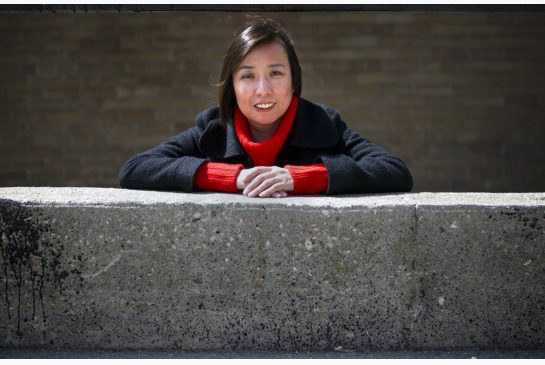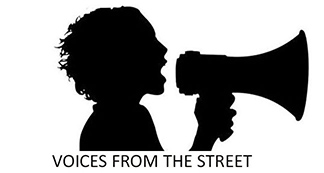
TORONTO STAR / ANDREW WALLACE
Judy Cong came to Canada a decade ago, hoping to sponsor her parents to join her. She was working on a factory line when she was diagnosed with a brain tumour. Now she is unable to sponsor her father to immigrate to Canada, because she and her husband have only one income. She is part of a speaker series at City Hall this week.
Catherine Porter
Apr 26 2011
When Judy Cong immigrated to Canada a decade ago, she promised her parents she’d sponsor them soon.
She was an electronic engineer with 11 year’s experience at a Chinese steel company. She figured she’d find a job quickly.
She had never heard the term “Canadian experience.” A year later, she was assembling smoke detectors on a factory line when her doctor found an apple-sized tumour on the back of her brain.
Her mother has since died. Her father, now 80, is losing hope of ever being reunited with his only child.
“Because only my husband is working, we still don’t qualify to sponsor him,” she says, with a slight slur, the right side of her face still paralyzed.
Cong’s is just one of 16 painful newcomer stories you can hear Wednesday night at City Hall. They are delivering their graduation speeches from the Mennonite New Life Centre’s new speaker series for immigrants and refugees.
They come from Cuba, Sri Lanka, Pakistan, Albania, Colombia. Most have never told their stories before — out of fear, pride, demoralization, language barriers, exhaustion.
Their timing is impeccable. With so much talk of the “very ethnic vote” this election, it’s about time we heard from someone “very ethnic.” Their voices are small, bright flowers in a carpet of green, prepackaged, on-message stump speeches. What they have to say is so raw and real, it might change your opinion on Canada’s immigration and settlement policies.
“Two words became a nightmare: Canadian experience,” says Endrit Mullisi, an aid worker who left a comfortable life in Albania a year and a half ago to resettle in Toronto with his young family. “Do I need Canadian experience to make photocopies or clean toilets?”
Mullisi is young and experienced: he left a good job at World Vision to come to Canada. He speaks great English. That should have made him a good candidate for many jobs he applied for. But, soon into his job hunt, he stumbled over a hidden truth of many job postings in Canada. They are cosmetic; the boss already has hired internally.
“This situation reminded me of the corruption I left behind in my country,” says Mullisi, 37.
Canada is the globe’s kitchen sink, draining the Third World’s best brains, Mullisi argues. But, once those brains are here, we’re only interested in their brawn. “Canadian experience” is our code for this.
“If you don’t have Canadian experience or Canadian education, your fate is security guard or construction,” says Mullisi, who just last week finally landed his first part-time job, facilitating volunteer programs at the Parkdale Activity Recreation Centre.
“So why bring me here? Why do you create fake hopes? Immigrants to Europe know that they’ll suffer, no one cares about them, they’ll do only odd jobs.”
Listening to Mullisi over coffee late last week, I found it hard to imagine him voiceless. His name in Albanian means “he shines,” and he does. But when he speaks to his caseworker, he holds his breath in fear, he says. She makes him feel stupid and small and powerless.
Those feelings arise in many of the speeches I read through.
Pat Capponi facilitated the program for the Mennonite Centre. Five years ago, she started Voices From the Street, a speaker series for homeless people. She thought she was branching out with this program.
“But the agonizing tales are very much the same — people making assumptions about their worth, people being angry at them just because they are here,” she told me. “The pressure on them is just enormous.”
The group intends to become a formal advocacy body for new Canadians, speaking at conferences and rallies. If you are planning a human rights or justice event, I’d book them now.
“These guys are going to be powerful speakers,” Capponi says. “They are going to change hearts and minds.”
Credit: Toronto Star
